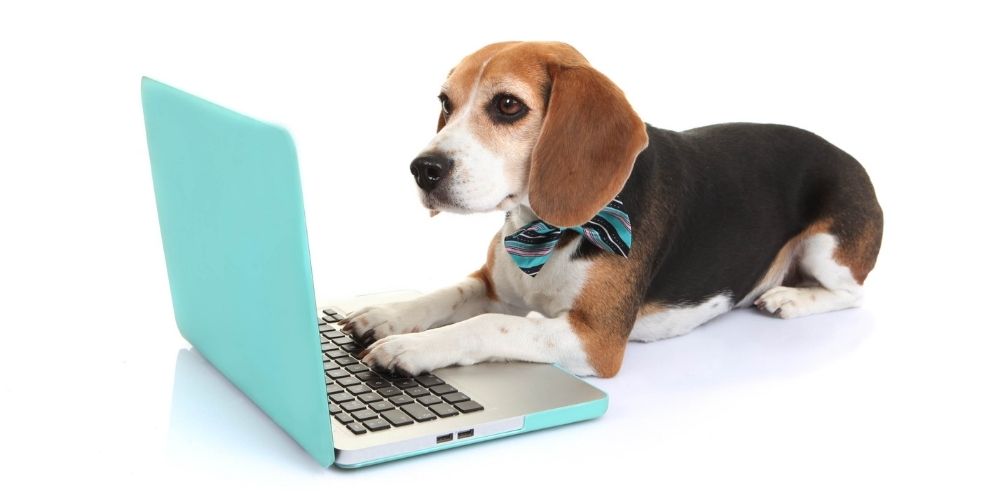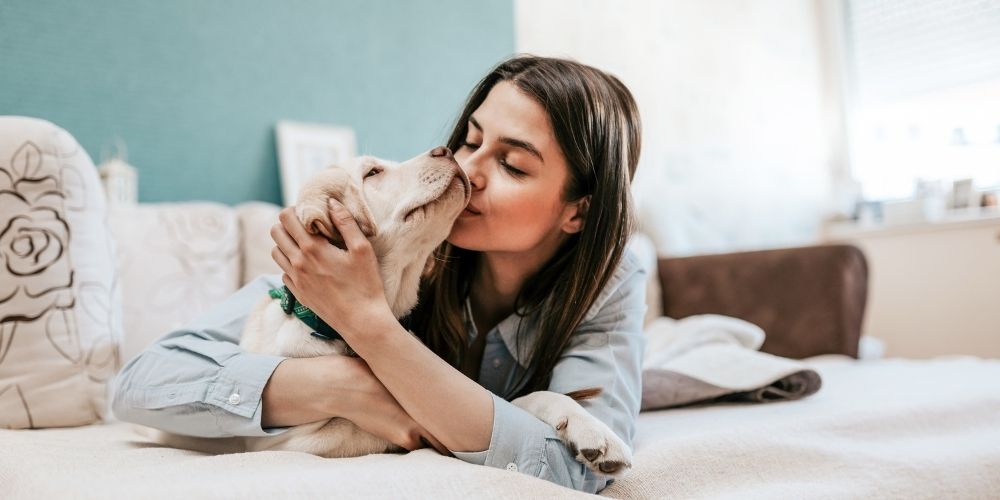Are air purifiers safe for pets?
Air purifiers work by removing pollutants and contaminants from the air to provide clean indoor air. It can be beneficial if you live in a household with pets. Furry pets shed hair, dander, and other airborne particles.
Additionally, dried saliva and other excrements can contain allergens that become airborne. These can cause health problems in humans if left unchecked. Air purifiers can remove these airborne contaminants caused by your pets. It makes it ideal to have an air purifier if you share your home with pets.
Not only are air purifiers beneficial to human health, but they can benefit your pet as well. Pets can also suffer from respiratory illness and be affected by asthma and allergies.
While this is not as prominent as it is in humans, several pets can show symptoms of ill health. Signs like a raspy and dry cough, unexpected weight loss, or wheezing can indicate an underlying respiratory problem.
Getting an air purifier for your household will not only alleviate health problems in humans but can positively benefit your pets as well, especially if they suffer from respiratory problems. These airborne irritants can also affect your pet’s sleep cycle.
Airborne particles that trigger health problems in pets can disrupt their sleep and worsen conditions. Sleep is vital for a pet, with some pets sleeping up to fifteen hours a day. An air purifier will eliminate airborne particles that disrupt your pet’s sleep, making them happier and healthier.
Additionally, air purifiers remove toxic and harmful particles from the air that benefit both human and pet health. It makes getting an air purifier a worthwhile investment.
Which types of air purifiers are safe for pets?

There are several different air purifiers in the market that use various technologies and show different results. Not all air purifiers are safe for humans and pets.
While purchasing a new air purifier for a household with pets, it is essential to familiarize yourself with the types of air purifiers available.
1. Air purifiers with True HEPA filter
True HEPA filters are the safest and most reliable filters found in air purifiers across the market. They have been in use for a long time and have a proven track record in terms of safety and industry standards.
They are good at removing smaller particles and are commonly found in several households across the country. These filters are sturdy, reliable, and safe when considering an air purifier for a home with pets.
2. Air purifiers with electrostatic filters
Electrostatic filters work by using electric current to charge particles that are then attracted to a collection plate. They are best used to remove ash and soot and are particularly useful in households near industrial factories. These types of filters release a small quantity of ozone.
While manufacturers claim that it is insufficient to cause damage, it is worth noting that ozone is a highly toxic substance. Prolonged ozone exposure can cause permanent damage to humans and pets alike.
Unless you are specifically in need of an electrostatic filter and are sure about the amount of ozone it releases, it is not recommended for households with pets.
3. Air purifiers with activated carbon filters
Activated carbon filters are good at removing odor but not very good at removing particles from the air. This can be beneficial in clearing smells caused by your pet. However, they are not very effective in isolation and are best used in conjunction with a HEPA filter. This way, harmful particles and pet odors in your household are removed.
Some air purifiers produce ozone. These ozone generators are efficient at removing foul odor, but as the name suggests, they release a lot of ozone in the process. Manufacturers may claim that their models are safe to use. It is best to avoid these types of air purifiers altogether since even the smallest amount of ozone exposure can cause a lot of damage to you and your pets.
So, which air purifier should you go for?
Air purifiers can be highly beneficial for you and your pets if you choose the right type. An air purifier with a HEPA filter is the best choice for a household with pets. If you also want to get rid of foul odor and other smells associated with pets, you can opt for an air purifier with an additional activated carbon filter.
So, an air purifier that has a True HEPA filter and an additional activated carbon filter is the best and safest choice to use in a household with pets.
5 ways to make your house smell pet free

Clean and clutter-free space
The first step in making your house smell-free is organizing your space. Make sure your litter boxes are positioned well and that pet waste is disposed of in a timely manner. It will help keep your area clean and smell-free.
Keep pets well-groomed. You can ensure your pets get groomed frequently, eliminating the dead skin shed in the nooks and crannies of your household.
Use room fresheners
You can also increase the use of essential oil diffusers and scented candles in your household to provide invigorating scents that you enjoy. It will help you combat an unpleasant odor and help introduce pleasant smells into your home.
Add plants to your home
You can increase the number of indoor plants in your household to remove harmful air pollutants. Plants naturally absorb carbon dioxide and release oxygen. If you have plants in your house, the air will be fresher than in a home without plants. This helps keep the air clean and will reduce the amount of stale and foul-smelling air in your household.
Buy an air purifier
The most effective way to get rid of pet smell in a household is to get an air purifier. An air purifier with an activated carbon filter will do wonders in keeping your space odor-free. A HEPA filter will remove pet dander and smaller particles from the air. Using both these filters in conjunction will help keep your house smelling fresh and clean.
Location of an air purifier
While installing a new purifier, positioning is essential. You want to keep your air purifier in a place where your pets won’t knock it over. Dislodging a purifier can cause more airborne contaminants to be released and undo the work your air purifier has done.
You can consider a wall-mounted air purifier if you have cats or dogs. If you have birds, you can place the air purifier on the opposite side of the room, away from them.
Air purifiers can be distracting for pets. You want to put your air purifier in a place where it will not disrupt your pets’ schedule and interfere with their routine.
Best Air Purifier If You Are Having Pets
One of the best air purifiers in the market if you are a pet owner is the LEVOIT Air Purifier for Home Large Room. It comes with a true HEPA filter and an activated charcoal filter, making it efficient at removing particles and odor.
The LEVOIT system has been known to remove 99.97% of dust, mold, and smoke and remove particles as small as 0.3 microns. It operates at low volumes to function quietly and not disrupt you or your pets from sleep. This is a highly recommended model for pet owners as it caters to most needs for a household with pets.
FAQ Section
1. Do air purifiers catch pet hair?
Yes, air purifiers can catch pet dander and hair, but only if they are floating in the air. A good HEPA filter can eliminate up to 99.97% of contaminants, including pet hair and dander.
2. Do air purifiers work for dog smell?
Yes, air purifiers can eliminate odor, including dog smells. You need to get an air purifier with an activated charcoal filter, as a HEPA filter alone cannot eliminate the odor completely. It is best to get a purifier with both filters to cover all your needs as a pet owner.
3. Are air purifiers with ionizers safe for pets?
Generally speaking, an air purifier that produces ozone should be avoided. Ionizers produce much less ozone than ozone generators. Manufacturers may claim that ionizers are safe.
However, an ozone generator is harmful to both humans and pets alike. It is best to avoid ionizers for households with pets, as even the smallest amount of ozone exposure can cause permanent health damage for your pets.
4. Will air purifiers help with pet allergies?
Air purifiers remove harmful contaminants and allergens in the air that affect humans and pets alike. If your pet suffers from respiratory conditions or allergies, an air purifier will help remove the contaminants in the air that trigger allergies.
Pets benefit from air purifiers, too, and they can help your pet’s allergies get better.
5. Are air purifiers safe for birds?
As long as you don’t use an air purifier that produces ozone, air purifiers are safe for birds. HEPA filters are considered safe for birds.
6. Are air purifiers safe for babies?
Ozone is a dangerous substance that will have devastating effects on your baby. As long as you avoid air purifiers that produce ozone, air purifiers are safe for your babies. True HEPA filters are known to be of good quality and are completely safe for your baby.
Wrapping Up
Air purifiers are used commonly in households to provide good quality indoor air. They offer several health benefits for homeowners across the country.
However, it is natural to question whether purchasing an air purifier is safe for your little furry friends as a pet owner. A good air purifier can be as beneficial for your pets as it is for your family. Identifying an air purifier that is right for you can be difficult as several different types and models of air purifiers are available.
We hope that this article has given you some pointers on whether air purifiers are safe for your pets. With this information, you can now confidently buy the right air purifier for your household.
Knowing that your pets can benefit from air purifiers as much as your family should give you the confidence to purchase an air purifier that is a good fit for your household.

About The Author
Olivia — a self-confessed air quality addict — is a home climate enthusiast, fresh air advocate, and someone with deep personal experience and knowledge about mold extermination. Her work was mentioned in countless notable humidity publications. Previously she was an editor at Mold Remediation.